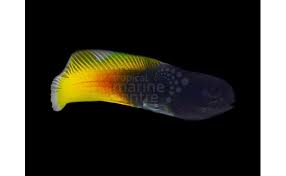The Dragon in Chinese Mythology: Protector of Families

In Chinese mythology, the dragon has long been a symbol of power, strength, and auspiciousness. While it is often portrayed as a celestial being associated with the heavens, the dragon also holds an essential place in the everyday lives of people, particularly in the context of family and household protection. Across numerous stories, the dragon is depicted as a guardian figure, offering safety and prosperity to families, ensuring harmony and protection against misfortune.
This article delves into the role of the dragon in Chinese mythological tales, exploring its function as a family protector. We will examine the significance of the dragon in folklore, its association with family welfare, and the broader cultural and spiritual implications of its role as a guardian in Chinese society.
The Symbolism of the Dragon in Chinese Culture
The dragon, or long (龙), is a central figure in Chinese culture, revered as a symbol of divine power, strength, and good fortune. Unlike the fearsome dragons of Western mythology, the Chinese dragon is considered a benevolent and positive force. It represents the harmonious balance of nature and is associated with water, rain, and the elements. It also embodies wisdom, transformation, and regeneration.
In traditional Chinese society, the dragon was closely tied to the emperor, symbolizing the emperor’s heavenly mandate to rule. The dragon was believed to have the power to control the forces of nature, particularly water, which is vital for agriculture. This connection to the divine and natural forces reinforced the dragon’s status as a protector and guardian. But beyond the imperial court, the dragon also played an important role in safeguarding the family unit, symbolizing prosperity, fertility, and protection against malevolent forces.
The Dragon’s Role in Protecting Families
Chinese mythology features numerous stories in which the dragon serves as a protector of families, ensuring their safety and prosperity. The dragon’s association with family welfare is deeply rooted in Chinese cultural values, where family and harmony are seen as essential for societal well-being.
The dragon is often depicted as a divine being who watches over the family, ensuring that its members remain safe from harm, misfortune, or evil spirits. In these mythological tales, the dragon’s presence often marks a time of blessing or protection, reinforcing its image as a guardian spirit.
1. The Dragon and the Protection of the Household
In Chinese folk beliefs, the dragon is often seen as a protector of the household, especially in rural areas where people relied heavily on agriculture for their livelihood. The dragon’s role as a guardian of water and rain made it an essential figure for families involved in farming. Its ability to control the weather was believed to ensure that crops thrived and the family prospered. In many villages, families would invoke the dragon’s blessing to ensure a bountiful harvest and protection from natural disasters like floods or droughts.
The dragon was often symbolically represented in household decorations and carvings, placed in strategic locations such as the main door or at the roof of a house, where it was believed to ward off negative energy and malevolent spirits. Such symbols reinforced the belief that the dragon would provide protection from evil forces and maintain harmony within the home.
2. The Dragon as a Guardian Against Evil Spirits
In Chinese mythology, dragons are often depicted as protectors not only of physical spaces but also of spiritual well-being. Many stories feature the dragon as a being that defends families from evil spirits and malevolent entities, which were believed to bring sickness, misfortune, or death. The dragon’s power to banish these spirits was highly revered, and its image was often placed on protective charms or talismans worn by family members.
One well-known tale involves a dragon that helps a family by chasing away an evil spirit or demon that had been haunting their home. In this story, the dragon’s intervention ensures that the family can live in peace, free from the threat of supernatural forces. The dragon’s protective role in these stories underscores its status as a guardian figure that offers not just physical protection, but spiritual security as well.
3. The Dragon in the Story of the Family’s Ancestors
In Chinese culture, ancestral worship plays a significant role in maintaining the harmony and prosperity of the family. The dragon is often depicted as a divine protector of the family’s lineage, safeguarding the honor and welfare of its ancestors. In many mythological stories, the dragon is associated with the origins of a particular family or clan, symbolizing the strength and protection of the family’s bloodline.
One popular myth involves a dragon that is said to have appeared to protect the ancestors of a great family, ensuring that their descendants would thrive and enjoy good fortune. This story emphasizes the connection between the dragon and the family’s heritage, suggesting that the dragon not only watches over the present generation but also ensures the continuation of the family’s legacy.
The dragon, as a symbol of continuity and protection, is also linked to the family’s ancestral altar, where offerings are made to honor the spirits of past generations. The belief in the dragon’s role as a guardian of the family’s lineage serves as a reminder of the importance of family ties and the protection of one’s ancestors.
Famous Mythological Stories Featuring the Dragon as a Protector
Several Chinese mythological stories feature the dragon as a protector of the family, highlighting its central role in the cultural and spiritual life of the Chinese people. These tales reflect the belief that the dragon has the power to safeguard families from harm, and its protective role is often tied to themes of filial piety, family unity, and the preservation of tradition.
1. The Legend of the Dragon and the Phoenix
The Dragon and the Phoenix is a well-known symbol in Chinese culture, representing the balance of opposites, such as male and female energy, power and grace, and heaven and earth. In many stories, the dragon and the phoenix are depicted as protectors of the family, ensuring that its members live in harmony and prosperity.
In one popular version of the tale, the dragon and the phoenix are said to have watched over a royal family, ensuring that their descendants would continue to enjoy wealth and power. In this myth, the dragon’s strength and power are balanced by the phoenix’s grace and nurturing qualities, emphasizing the complementary roles of the two creatures in maintaining family harmony.
2. The Myth of the Dragon and the Emperor’s Family
One of the most significant mythological stories involving the dragon as a protector of the family is the tale of the dragon’s role in safeguarding the emperor’s family. According to legend, the first emperor of China, Emperor Huangdi, was said to have been protected by a celestial dragon who ensured his safety and the prosperity of his reign. The dragon was believed to have been sent by the heavens to watch over the emperor’s family and to guide them toward a prosperous future.
The dragon, in this story, serves as a divine protector not only for the emperor but for his entire family. The belief that the emperor’s lineage was protected by the dragon reinforced the notion of the emperor’s divine mandate and his duty to protect his people and family.
3. The Dragon’s Protection of the Family’s Harvest
In rural China, the dragon was often invoked to ensure the protection of the family’s harvest. One common story tells of a family whose crops were failing due to a prolonged drought. Desperate, they called upon the dragon to bring rain and restore the health of their crops. In response, the dragon is said to have emerged from the heavens, bringing with it rain and a bountiful harvest.
In this story, the dragon’s role as a protector of the family is directly tied to the family’s survival and prosperity. The dragon’s intervention ensures that the family will not suffer hardship and that their livelihood will be preserved.
The Dragon in Family Traditions and Practices
In addition to its role in mythology, the dragon also plays a significant part in various family traditions and practices in China. During important family events, such as weddings, birthdays, and the Lunar New Year, the dragon is often invoked as a symbol of good fortune and protection. Dragon motifs are commonly seen in family decorations, including paintings, sculptures, and embroidered fabrics, where they serve as both a protective and auspicious symbol.
During the Chinese New Year, dragon dances are a popular tradition, believed to bring good luck and ward off evil spirits. These dances often take place in family settings, with the dragon symbolizing the family’s hope for a prosperous and peaceful year ahead.
Conclusion
The dragon, as a protector of families in Chinese mythology, embodies strength, wisdom, and benevolence. It serves as a guardian against evil spirits, a bringer of prosperity, and a symbol of continuity and familial legacy. Through mythological stories, cultural practices, and spiritual beliefs, the dragon has become an integral figure in Chinese society, ensuring the safety and well-being of families throughout the ages. Its role as a protector highlights the importance of family, unity, and harmony in Chinese culture, making the dragon not just a symbol of power, but also a nurturing and protective force that has long been revered by generations of Chinese people.


